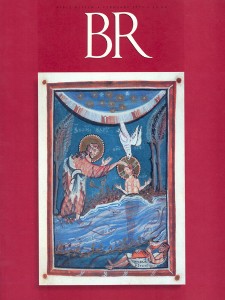The Passion Narratives and the Roots of Anti-Judasim
The difference in date between Passover and Easter is only the external sign of a division between Jews and Christians that has resulted in the darkest chapters of Christian history.

Early in the spring of each year, Jews celebrate Passover and Christians celebrate Easter, though rarely on the same day. This may seem strange because the Christian Easter date, the feast of the resurrection of Jesus, is tied to the memory of the last meal of Jesus with his disciples on the eve of Passover and to his crucifixion and death on the day of Passover. Why is there now a difference in the date? Why does the day of Passover in the Jewish calendar begin on the eve of April 5 this year, while the memorial of the last meal of Jesus falls on April 8?
The difference in date is only the external sign of a division between Jews and Christians that has resulted in the darkest chapters of Christian history, namely the rejection and often murderous persecution of the Jewish people. In the beginning, there were many Christians who commemorated the death of Jesus on the eve of Passover according to the Jewish lunar calendar. But in the fourth century C.E., Christian bishops and synods enforced a different date for Easter—the Sunday after the first full moon following the spring equinox. It was no longer deemed desirable that Christians should celebrate the festival of the resurrection on a date dictated by Jewish rabbis, the successors of those who were believed to have been responsible for the death of Jesus.
Already a library member? Log in here.
Institution user? Log in with your IP address.

